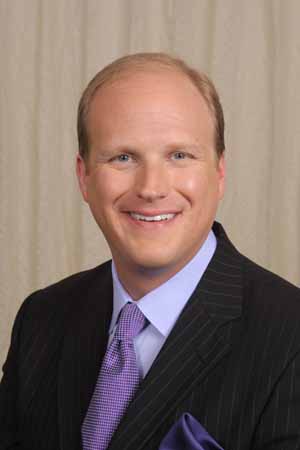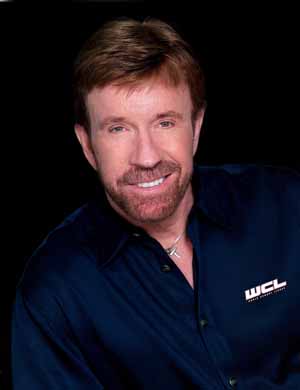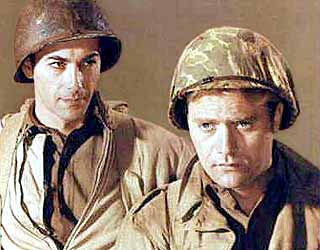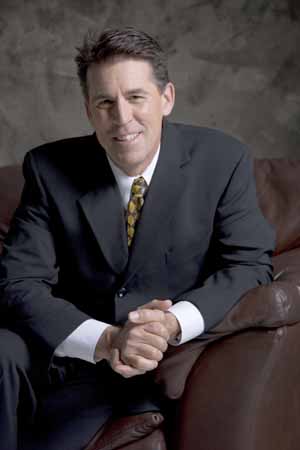Online-Only Q&A: Chris Wyatt on ComStar Media's Strategy
The smarter way to stay on top of the multichannel video marketplace. Sign up below.
You are now subscribed
Your newsletter sign-up was successful
ComStar Media Fund CEO Chris Wyatt spoke with Multichannel News executive editor Kent Gibbons last week after ComStar bought its second cable network this year, FamilyNet, after earlier buying AmericanLife Television Network. Wyatt founded ComStar with Dr. Robert A. Schuller, former co-host of religious program The Hour of Power from Crystal Cathedral Ministries. Here are highlights with some clarifications in brackets.
Q: Is ComStar still looking for properties to buy?
A: Yeah we're actively looking for acquisition targets.
Q: Are you bringing in other investors or have you already or is just you and Mr. Schuller?

A: Oh no, I wish that were the case. No, it's a private-equity fund so we do have investors. Primarily right now it's just high net worth individuals primarily looking for safe places to grow their money in a market that doesn't offer many choices.
Q: Is it a good time to be buying these particular kinds of networks, these properties?
A: It's a spectacular time to be buying them. I mean cable has been one of the darlings, media darlings, through this recession with multiple revenue streams. So certainly what we look at when we go to acquire an asset is: what is the cash flow over the next three to five years? And many times, depending upon which cable network you're looking at, you've got built in revenues from subscriber fees. So that gives you a baseline.
The smarter way to stay on top of the multichannel video marketplace. Sign up below.
And of course direct response. What we've found in the networks that we're acquiring and turning around is that the direct response market out there is actually doing very well, at least for the properties that we've acquired. Cable is up I think 30% across the board, I read that somewhere. I know we're up about 60% over last year with AmericanLife. Of course we've only owned it [less than] a year. And we plan to do the same with Family Net is to really increase the revenue significantly.
Q: AmericanLife is 60% up in what, revenue, cash flow?
A: Revenue.
Q: So what's the business model? Do you think you'll be able to find an ad market that's not being served now? Do you think that you can increase affiliate fees over time?
A: Right now, we're just in acquisition and turn-around mode. In total, there were some 120 individuals working on both of these networks combined, we have a fraction of that working on ours. The first part of the business is to acquire and turn them around. We're looking to make a couple more acquisitions in 2010 and after that what we're going to do is rebrand all of the networks and combine them where possible.
And what we're looking to do is create an overall family brand. We see a massive underserved market out there in terms of the family market and despite the fact that you have channels with names like ABC Family, Disney and Nickelodeon and Nick at Nite. What you find primarily throughout the Midwest and South is a lot of families are absolutely, positively discontent with shows like The Secret Lives of Teenagers [Ed.: The Secret Life of the American Teenager, on ABC Family], which glorifies teen sex and teen pregnancy and deals with issues like child incest. That certainly is something that most Americans don't find appropriate to check the box by the family category.
We kind of liken it to when Fox launched Fox News in '96. The pundits said the market is saturated, we've got a leader in the space, CNN. And what the media didn't understand was 100% back then of the media's attention was focused on 50% of the values of the United States. And by creating counter programming we now know Fox and Fox News is the most successful news organization out there.
What we see is an ever-increasing bar that is being raised by the networks in terms of what is acceptable. And you'll find many families around the country who cringe at watching golf because they're afraid a Cialis ad will pop up, or they are cringing because of how the actors in the Disney Channel sitcoms disparage parents and make them look like idiots. That's really what we see. [Ed.: pundits including Michael Willner have complained about placement of similar "ambush" ads in sports programming.]
Q: You mentioned Cialis ads coming up during golf matches. You also talked about increases in direct-response sales. Are you going to have ad guidelines that won't permit certain things?
A: Yeah, absolutely. You know, that was one of the successes of my prior company, GodTube.We received millions of emails over the course of the year and it was thank you for creating a safe environment for my children. And whether that is an inappropriate ad, for example, or inappropriate content absolutely there is a filter system put on so parents don't have to worry about the child seeing, for example, an ad for a condom or Cialis. And Cialis, I'm just giving you an example, or even a Victoria's Secret ad for that matter, absolutely there'd be guidelines.
Q: How does something like showing the movies The Third Jihad and Obsession, and now you're adding Chuck Norris's World Combat League programming on AmericanLife. How does that fit in with what you're talking about here?
A: Well when it comes to The Third Jihad and Obsession, I think what we did was we took a look at that and we said, hmm, you know, we watched both programs and, you know, I think the best way to describe it is we agree with former mayor Rudolph Giuliani when he said, quite frankly, quote, this is in reference to The Third Jihad, every family in America should see this program. And I definitely agree because it goes to national security. National security is a matter that affects all families.

So while we'd be family friendly with what some people would call a controversial series, certainly there's nothing in it that is objectionable or inappropriate. In terms of Chuck Norris's World Combat League, one thing Chuck has shown and one thing that the show has shown is that this is really a family friendly martial arts. It's not MMA [mixed martial arts], there's no brawlers. There's no blood, for example, It's not a boxing fever type thing. I think over the last 10-15 years martial arts has turned into more of a family sport really than anything else: it shows dedication, honor and responsibility and teaches it to children. And I think that's what Chuck has tried to do with the series. And I think he has done it pretty well.
Q: So what's the mix of programming that you would like to see with these networks and when they combine?
A: Well, right now, as you know, we run a bunch of off-net programming. We see bringing in movie nights, doing a couple of movie nights a week in terms of recent releases that are family friendly. We are also getting ready to open a $50-million production fund starting in January to do all of our original productions.
We're going to start making these announcements in January, but we're bringing in celebrities for their own vehicles. And at the same time what we're also doing is we're licensing what we call large affinity groups. Affinity groups are organizations, primarily secular organizations, that have memberships in the tens of millions. And these are some rather large, known organizations that we're going to start announcing. And what we're going to be able to do with this content is create reality programs as well as dramas that already have a built in audience. And of course the organization will turn around and promote them to their constituency as part of a marketing agreement.
Q: Comcast now is saying that it's going to add independent networks to the digital lineup after it goes all digital, part of the NBC Universal merger proposal. Do you think that's going to have a big impact for you? What do you see as the prospects for independent networks going forward as these cable operators and as they all continue to consolidate?
A: Well, it never makes it easier, but the bottom line is if you have original programming that people want, they're going to demand it from the cable company. And that's where we really see one of our strengths.
We brought in a number of individuals from Hollywood - John Golhammer, who ran Paramount Domestic Television, we brought in Tony Thomopoulos, who ran all of ABC [former president of ABC Entertainment], to really help us with our original programming as well as reprogramming both of the networks, next year.
Actually we've already started producing original programming, for example Dr. Schuller's return to television, he's in Everyday Life, it's a dramatic series, and he has 20 million viewers here in the United States alone from the Crystal Cathedral's Hour of Power. So when you start building that type of programming that has tens of millions of viewers already build in, demand drives the market. It really does.
So both of these services have been on the air, one since '79, the other since '85, so they are well liked, they are well known. We're just taking them really to the next level.
Q: Family Net: I understand that the 26 million-subscriber figure has been broken down, I think it's 10 million cable homes and 16 million broadcast. Do they own broadcast stations?
A: No, it is a retransmission arrangement. We have six full-time stations and the rest are low-power stations. But our focus is on cable.
Q: Have you been out meeting with affiliates yourself?
A: No I've spoken to them a lot on the phone. I'm so busy working at the fund level. We hired a couple affiliate sales guys that do, but I'd like to get out on the road myself, but I'm stuck in M&A mode and financing.
Q: What are you hearing from affiliates? What are they thinking about, do they like what's going to happen next with these networks?
A: Well I think what we've communicated to our affiliates is basically we are going to kind of continue the theme of both of these. I mean one certainly is a small competitor or an independent competitor to TV Land, you know, and FamilyNet is family programming, both are focused around families. So the feedback we've got is thank goodness.
Family Net, we really just acquired it a week ago so we really haven't had a chance to go down and sit down and talk with everybody. However, in the case of AmericanLife, I can tell you that the previous owners did a fairly good job at original programming but hadn't brought anything original in in quite some time. So when we come out of the bat with two series and start licensing exclusives, like The Third Jihad, for example, you know, a lot of interest piques up. When we tell them our plan, serving the family market, we hear the same thing and that is: wow, this is so neat, this is fantastic, tell us more.
And that's really kind of what we knew was out there. But once you know the market is out there, realizing it and seeing it are really two different things and we've been welcomed certainly with open arms at the system level and at the cable corporate level.
Q: So you had a positive reaction from the affiliates to those two movies?
A: The Third Jihad, absolutely we did. In terms of Obsession, it airs on the 18th. [Ed. Obsession had aired in September, a spokesman said Wyatt misspoke.] But I can tell you it's about 70/30 for The Third Jihad. The Third Jihad is really a watered down view. It is really an academic view.
And what really kind of sickens me is the negative press, and there has been very little that we've seen, haven't even watched the movies. They condemn them immediately as an attack. And my answer to that is any intelligent person wouldn't give an opinion without actually watching it first and shouldn't if they want to be listened to. My advice would be watch them and then comment. So the press that I have seen that's been out -- and it's not a lot -- the press that I have seen, the one guy just blasted us and said well I haven't seen the movie. Well, you know, come on really, seriously.
I don't see us necessarily doing any more of those. We just saw an opportunity, you know, to really kind of stem the tide of political correctness. For example, just because one of the princes in Saudi Arabia takes a 14% interest, I believe it is, in Fox News, all of a sudden we stop hearing about terrorism from around the world. You know, give me a break. Seriously. Our interests are not economically tied and that's how we see it.
Q: So did you get a lot of calls from viewers? Did affiliates weight in at all?
A: No, nothing really. It's basically emails. It was basically emails and it wasn't a lot of them. But surprisingly enough when we took Combat! off the air [at AmericanLife] we got more emails. It was not that many. And of course we appreciate everybody's opinion but it really wasn't what I expected. I thought we were going to receive an onslaught of pro and con and we really didn't. I mean it's pretty benign, it really is. Both of them are actually.
But the problem is political correctness and everybody has kind of taken a step back and said well wait a minute, you know, we really don't understand the issue that's going on, and most Americans don't. We saw the opportunity to try to help educate them. But what I think is people's eyes are getting opened going well wait a minute, maybe this is something we should pay attention to. That's kind of what we saw really.
Q: You took Combat! off the air, what other kind of changes have you made to the line up at AL TV?
A: We took Combat! off the air, primarily because it was black-and-white. We're in the process of reprogramming now. We're just trying to clean up some of the slop. I mean there was a good chunk of [public-domain programming] on here. Not a good chunk, but there were several PD programs and series that we removed. You know, things like Gershwin on Ice from the '80s that they'd run the sprockets off of, we replaced.
What's going to happen here is you're going to see one major programming change rather than us kind of blending it in over the course of time. What you're going to see is a major programming change here next year, along with the name change.
In the meantime, right now our focus is on licensing movies that are exclusive movies, for example. We've gone back to our primary program suppliers at CBS and Fox and talked to them and are restructuring deals with them to really include better off-net programming. Rather than programs from the '60s and '70s you're going to see programs from the '90s and 2000s, around movies. And then we're going to start bringing our original programming and exclusives to the network.

Q: What the overlap is between Family Net and AmericanLife. Do you think you'll be able to combine them?
A: Well that's going to be the million-dollar question is how we do that. Right now they're run absolutely as separate organizations at this point because of the MFNs [most-favored-nation clauses] in the contracts. We have to take a real good close look. There's not a serious overlap between the two but there are differences in the services themselves.
Q: Are you out there trying to add affiliates now or is it not the time until you've gotten the network the way you want it?
A: AmericanLife itself grew last year at about the same pace it has in the past. We're up about 12% in distribution. It looks like we're going to add about a million subs this year.
In terms of FamilyNet, FamilyNet is a different type of service. We've owned it a little over a week. As I understand it there are some launches that are pretty significant that are going to happen here in January so that's got some things that we're looking to. I'm going to say maintain but really kind of improve and be a little more aggressive. And then of course when we relaunch, that's really when we're going to hit it hard.
Q: On the relaunch, are you thinking in the fall or earlier than that?
A: We're going to try to do it earlier than that. We've got a lot of balls in the air. I'd like to think it's going to be the fall at the latest.
Q: Do you have a name in mind already?
A: No, I wish I did. It's the million-dollar question. We've got some balls we're juggling. We're really juggling here. It's really unique because we have to really identify a name that works well online as well as on air. We're going to be launching quite an aggressive online presence as well.
Q: Are you securing online rights to all the programming that you are acquiring?
A: Yes.
Q: Do you think you might take part in this kind of TV anywhere concept that cable operators are talking about?
A: Well that's a good question. It remains to be seen. My last company, GodTube, was the fastest growing website of 2007, was YouTube's largest competitor. I think the best way to put it would be yes, we are aggressively licensing everything that's out there right now from independent product to studio product to product that we're licensing, to product that does not run on the network.
Q: And you want to be able to run everything online?
A: Yeah, as much of it as we can. Naturally some of the older series, the off-net series, the studios don't have the internet rights. But we're trying to license everything on air. Really everything on air is a drop in the bucket compared to the vast sea of content that is out there from the other studios as well as independents, as well as foreign distributors and foreign networks as well.
I ran Netflix's largest competitor for a number of years in Silicon Valley. And what we found that was really unique was -- and it's something I don't think Hulu has really come to understand -- is the breadth and depth of titles that really makes a service.
What we've seen in the market is they're starting to license independent content as well and there really is a breadth and depth and that's something we haven't seen online. The best that we can tell there's about 1,700 titles give or take on Hulu at any one given time. But to create a true service that's going to be a stand-alone and that will be around for years, you're going to need 50,000-60,000 titles.
Q: That's what you guys aspire to do?
A: Well eventually, yeah. Eventually we'd like to be certainly a premiere online destination for television series and movies. Absolutely. That's what we're doing.
Q: Have you been able to bring in any significant sponsors? I realize it's early with AmericanLife to even.. But have you had any success on that front?
A: Yeah, we actually have. Believe it or not Roslyn Capital came in and sponsored all of Dr. Schuller's show, which is something really to see. But no, we have not really at this point. What we did is we we're building out a sales team. We acquired FamilyNet's sales team, they've been with us for about a week now. It's something we're aggressively going after right now, especially as fast as we can transition the network out of direct response, the better we're going to be.
Q: So you want to transition out of direct response, even though there's a good, healthy market there?
A: Yeah, I absolutely do. For family values, absolutely, positively. Especially if you've got unique programming as well as exclusives. It's something that the FamilyNet sales team has been very good at doing and that is bring in brand advertising for a network the size of FamilyNet. With the additional distribution of AmericanLife as well as FamilyNet and whatever we're going to acquire next, we see continuing that, trying to bring as many brand advertisers and program sponsors on as possible.
Q: Are you looking to acquire other networks that are in this niche, kind of family sort of marketed, targeted at this time? I mean along the lines of the two that you've purchased already?

A: Yes, absolutely. Anything that kind of fits with our wheelhouse, is something that is in the family market or something that, for example, can be transitioned into the family market, is what we're actively acquiring.
There are a lot of distressed media assets out there, you know? And what we see is a number of organizations that broadcasting is not germane to their business model and, because of the economy, all of a sudden those assets have significantly less value to the organization as naturally the organization. Any organization facing these economic times would take a look at something that isn't really core to their competency. So that's what we see doing, continuing to buy distressed media properties, at least for the next 18 months.
Q: Broadcast as well as cable?
A: Primarily cable and satellite is really where we're looking. We just happened to acquire these broadcast affiliates as part of [FamilyNet]. Broadcast is really not something that we see ourselves getting into any time soon.
Q: Do you have any of your big affiliate deals rolling off any time soon?
A: No, not really. No significant, no major, significant changes on the horizon. I can tell you that our major affiliates have been really pleased with what they've seen on AmericanLife. I mean we did what we said we were gong to do, we gave the network an entire new look, refreshed the programming line up, came in and programmed it properly, got rid of a lot of the clutter. I mean the numbers speak for themselves. We're up 60% over the last year and we think we can double that in terms of revenues.
In distribution you're probably going to see some pretty significant deals that are done in distribution for AmericanLife over the next say four months.
Q: And how did you get the revenue up 60%? That's all advertising?
A: Well it was a combination of things. What we did was we brought in a team who really understands scheduling and trafficking for example. AmericanLife had been sold out for two quarters in advance. So certain things like knowing how to schedule commercials, what commercials and what shows, for example, increasing the quality of programs is another one and really driving a clear message to the view. Viewership is up and so is advertising.
It's a pretty straightforward correlation that we found, at least with AmericanLife, was it was DOA essentially. So in the fourth quarter we've raised our rates three times this year and in the fourth quarter we're completely sold out again, which tells us we need to raise our rates yet again and we're going to. It has taken off like a rocket ship.
